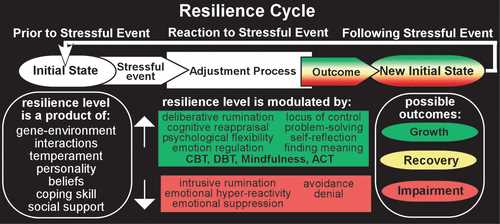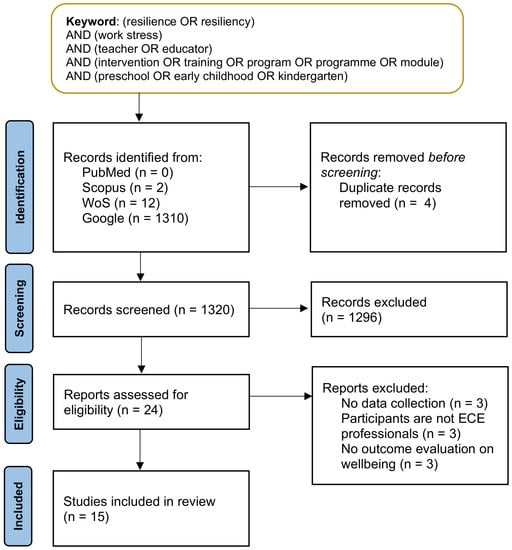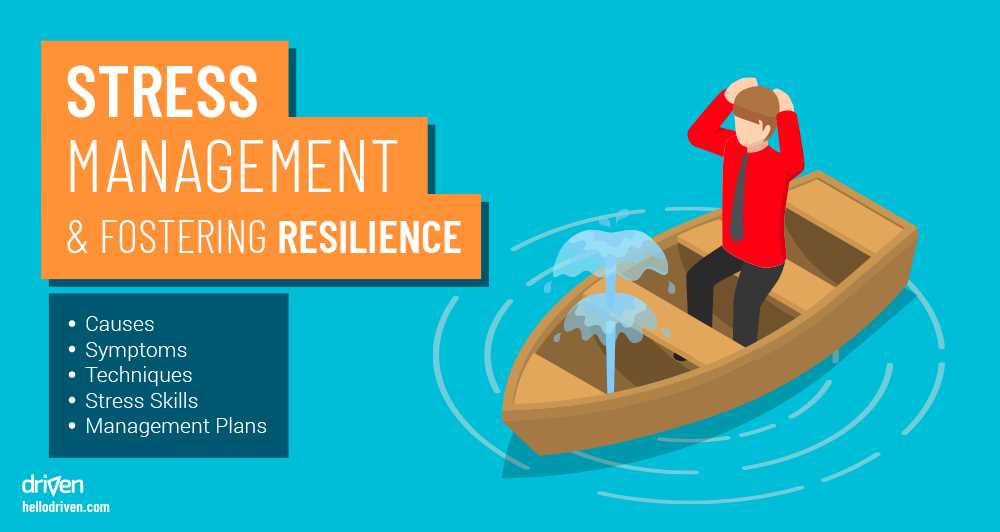
In today’s fast-paced and demanding world, stress has become an inevitable part of our lives. From work pressures to personal challenges, stress can take a toll on our mental and emotional well-being. However, with the right support and effective stress management strategies, we can cultivate resilience and build the skills necessary to navigate through life’s challenges with grace and adaptability.
Resilience, often defined as the ability to bounce back from adversity, is a crucial skill in stress management. It allows us to not only cope with stress but also thrive in the face of it. By developing resilience, we can strengthen our mental and emotional muscles, enabling us to better manage stress and overcome obstacles.
One important aspect of promoting resilience is self-care. Taking care of ourselves physically, emotionally, and mentally is essential in managing stress and building resilience. This includes engaging in activities that bring us joy, practicing self-compassion, and prioritizing our well-being. By nurturing ourselves, we can replenish our energy and develop the resilience needed to navigate through stressful situations.
Another key component of resilience-building is developing effective coping skills. Coping mechanisms such as mindfulness, deep breathing exercises, and positive self-talk can help us regulate our emotions and reduce stress levels. These skills empower us to face challenges head-on and find healthy ways to manage stress. By practicing these coping strategies, we can enhance our resilience and promote overall well-being.
Understanding Resilience
Resilience is the ability to adapt and bounce back from stress, adversity, trauma, or tragedy. It involves the capacity to withstand and recover from difficult experiences, while maintaining mental and emotional well-being. Resilience is not about avoiding stress or eliminating it entirely, but rather about developing effective strategies for managing and coping with stress.
One important aspect of resilience is having a strong support system. This can include family, friends, coworkers, or professionals who can provide emotional support and guidance. Social support is crucial in times of stress, as it can help individuals feel understood, validated, and less alone.
Another key component of resilience is self-care. Engaging in self-care activities, such as exercise, proper nutrition, and sufficient sleep, can help individuals build physical and mental strength, making them better equipped to handle stress. Additionally, practicing relaxation techniques, such as deep breathing or meditation, can help reduce stress levels and promote a sense of calm.
Resilience also involves developing effective stress management skills. This can include techniques such as problem-solving, time management, and setting boundaries. Learning to prioritize tasks, delegate responsibilities, and say no when necessary can help individuals feel more in control of their stress levels and prevent overwhelm.
Finally, promoting resilience requires individuals to cultivate positive coping mechanisms. This can involve engaging in activities that bring joy and fulfillment, such as hobbies, creative outlets, or spending time in nature. Finding healthy ways to cope with stress, rather than relying on unhealthy habits or substances, is essential for building mental and emotional strength.
In conclusion, understanding resilience is crucial in promoting mental and emotional well-being. By developing adaptability, stress management skills, and a strong support system, individuals can build the resilience needed to navigate difficult experiences and bounce back from adversity.
What is Resilience?
Resilience is a set of skills and strategies that individuals can develop to effectively manage stress and promote mental and emotional strength. It is the ability to adapt and bounce back from difficult experiences, setbacks, and challenges. Resilience involves self-care, stress management, and seeking support when needed.
Resilience is not about avoiding or eliminating stress, but rather about developing healthy coping mechanisms and strategies to navigate through stressful situations. It is about building the capacity to withstand and recover from stress, and to grow stronger and more resilient as a result.
Resilience involves recognizing and accepting one’s emotions, thoughts, and reactions to stress, and finding healthy ways to manage them. It is about developing and maintaining a positive mindset, cultivating self-awareness, and practicing self-care activities that promote mental and emotional well-being.
Building resilience requires developing skills such as problem-solving, effective communication, and healthy relationship-building. It involves identifying and challenging negative thinking patterns, practicing self-compassion and self-acceptance, and cultivating a sense of purpose and meaning in life.
In addition to individual efforts, promoting resilience also involves seeking support from others. This can include reaching out to friends, family, or professionals for guidance and advice, as well as participating in support groups or therapy sessions.
Overall, resilience is a dynamic and ongoing process that requires active engagement and practice. It is about developing the ability to adapt and thrive in the face of adversity, and to use stress as an opportunity for growth and personal development.
The Importance of Resilience in Stress Management

Resilience plays a crucial role in promoting effective stress management. In today’s fast-paced and demanding world, individuals are constantly exposed to various stressors. The ability to adapt and bounce back from these challenges is essential for maintaining mental and emotional well-being.
Resilience refers to the capacity to cope with and recover from adversity. It involves developing skills and strategies to navigate through difficult situations and maintain a positive outlook. By cultivating resilience, individuals can better manage stress and build mental and emotional strength.
One of the key benefits of resilience in stress management is the ability to cope with and adapt to stressful situations. Resilient individuals are more likely to approach stressors as challenges rather than threats, which can help reduce the negative impact of stress on their overall well-being. They are better equipped to identify and implement effective coping mechanisms, such as problem-solving and seeking social support.
Moreover, resilience provides individuals with a sense of control and empowerment. When faced with stressful situations, resilient individuals are more likely to believe in their ability to overcome obstacles and find solutions. This belief in one’s own capabilities can significantly reduce feelings of helplessness and increase motivation to take proactive steps towards stress management.
Additionally, resilience can enhance social support networks. Resilient individuals are more likely to seek and receive support from others, which can provide a valuable source of comfort and encouragement during stressful times. Social support has been shown to buffer the negative effects of stress and promote overall well-being.
In conclusion, resilience is a vital component of effective stress management. By developing resilience skills, individuals can enhance their ability to cope with and adapt to stress, maintain a positive outlook, and build a strong support network. Prioritizing resilience in stress management strategies can lead to improved mental and emotional well-being in the face of challenging circumstances.
The Science Behind Resilience
Resilience is a key factor in stress management and promoting mental and emotional strength. It refers to the ability to adapt and bounce back from difficult situations, and it plays a crucial role in maintaining overall well-being.
Scientific research has shown that resilience is not an innate trait, but rather a set of skills that can be learned and developed over time. These skills include self-awareness, problem-solving, positive thinking, and effective communication.
One of the main components of resilience is the ability to manage stress. Stress is a natural response to challenging situations, and it can have both physical and psychological effects. By developing stress management techniques, individuals can better cope with stress and build their resilience.
Self-care is another important aspect of resilience. Taking care of one’s physical and emotional needs is essential for maintaining well-being and building resilience. This can include activities such as exercise, proper nutrition, getting enough sleep, and engaging in hobbies or activities that bring joy and relaxation.
Support from others is also crucial in building resilience. Having a strong support system can provide individuals with the encouragement and resources they need to overcome challenges. This can include friends, family, mentors, or support groups.
In summary, resilience is not just a trait that some people are born with, but a set of skills that can be cultivated and strengthened. By developing stress management techniques, practicing self-care, and seeking support from others, individuals can build their resilience and better navigate the challenges of life.
Developing Resilience

Resilience is the ability to bounce back from adversity and maintain mental and emotional strength. It is an essential skill for coping with stress and promoting overall well-being. Developing resilience requires a combination of support, skills, and self-care practices.
One way to develop resilience is by building a strong support system. Surrounding yourself with positive and supportive people can help you navigate through difficult times. It is important to lean on others for emotional support and seek guidance when needed. Additionally, participating in support groups or therapy can provide valuable tools for building resilience.
Another key aspect of developing resilience is learning and practicing coping skills. These skills can include stress management techniques, such as deep breathing exercises or meditation. They can also involve problem-solving strategies and effective communication skills. By developing these skills, you can better adapt to stressful situations and maintain a positive mindset.
Adaptability is also an important component of resilience. Being able to adapt to change and embrace new challenges can help build resilience. This can involve developing a growth mindset, where you view setbacks as opportunities for learning and growth. By embracing change and being open to new experiences, you can enhance your resilience and ability to handle stress.
Self-care is a crucial part of developing resilience. Taking care of your physical, mental, and emotional well-being is essential for building strength and resilience. This can involve practicing regular exercise, getting enough sleep, and eating a healthy diet. Additionally, engaging in activities that bring you joy and relaxation can help recharge your emotional batteries and promote resilience.
In conclusion, developing resilience is a vital aspect of stress management and building mental and emotional strength. By seeking support, learning coping skills, embracing adaptability, and practicing self-care, you can enhance your resilience and better navigate through life’s challenges.
Identifying and Accepting Emotions

One crucial aspect of promoting resilience in stress management is identifying and accepting emotions. When facing stressful situations, it is essential to recognize and acknowledge the emotions that arise. This self-awareness allows individuals to better understand their reactions and develop effective coping strategies.
Stress can evoke a range of emotions, such as frustration, anger, sadness, or anxiety. By identifying these emotions, individuals can gain insight into their mental and emotional state. This awareness enables them to address the root causes and develop targeted strategies to manage their stress effectively.
Adaptability and emotional intelligence are valuable skills in stress management. By accepting and embracing their emotions, individuals can cultivate resilience and build mental and emotional strength. It is crucial to understand that experiencing a wide range of emotions is a normal part of the human experience.
Self-care plays a vital role in identifying and accepting emotions. Engaging in activities that promote well-being, such as exercise, meditation, or journaling, can help individuals connect with their emotions on a deeper level. Regular self-care practices provide an opportunity to process and reflect on emotions, leading to increased self-awareness and emotional resilience.
Support systems also play a significant role in identifying and accepting emotions. Talking to trusted friends, family, or mental health professionals can provide valuable insights and perspectives. These supportive relationships can help individuals navigate their emotions and develop effective coping mechanisms.
In conclusion, identifying and accepting emotions is a crucial component of promoting resilience in stress management. By recognizing and acknowledging emotions, individuals can develop self-awareness, adaptability, and emotional intelligence. Engaging in self-care practices and seeking support from others further enhances the ability to manage stress effectively and build mental and emotional strength.
Cultivating a Growth Mindset
In the face of stress and adversity, cultivating a growth mindset can be a valuable tool for promoting resilience and effective stress management. A growth mindset is the belief that abilities and intelligence can be developed through dedication and hard work. This mindset encourages individuals to view challenges as opportunities for growth and learning, rather than as insurmountable obstacles.
When faced with stress, individuals with a growth mindset are more likely to cope and adapt, as they believe in their ability to learn and improve. They see setbacks as temporary and are more likely to seek support and resources to overcome challenges. This mindset also encourages individuals to engage in self-care practices that promote mental and emotional well-being.
One way to cultivate a growth mindset is through self-reflection and reframing negative thoughts. By recognizing and challenging negative self-talk, individuals can shift their mindset towards growth and resilience. This can be done through practices such as journaling, mindfulness, and positive affirmations.
Another important aspect of cultivating a growth mindset is seeking support and building a strong network of relationships. Surrounding oneself with individuals who provide encouragement and support can help promote resilience and provide a sense of belonging.
Additionally, developing adaptability and flexibility can contribute to a growth mindset. Embracing change and being open to new experiences allows individuals to learn and grow from different situations. This can be achieved through seeking new challenges, taking on different perspectives, and continually learning and developing new skills.
In conclusion, cultivating a growth mindset is a powerful strategy for building resilience and effective stress management. By embracing challenges, seeking support, and developing adaptability, individuals can promote their mental and emotional strength and thrive in the face of stress.

I am Patrina de Silva, a psychologist and mental health blogger in Sri Lanka. After obtaining psychology degrees from the University of Colombo and Monash University, I returned home to work as a counselor while also starting the popular blog “Pressy but Happy” to provide advice on psychological issues. Over the past decade, my empathetic articles have made my blog a leading mental health resource in the country. In addition to writing, I maintain a private therapy practice, frequently volunteer counseling time, and conduct seminars, driven by my passion for destigmatizing mental illness and educating the public on the mind-body connection. I strive to be an influential voice in my field through my compassionate approach.
